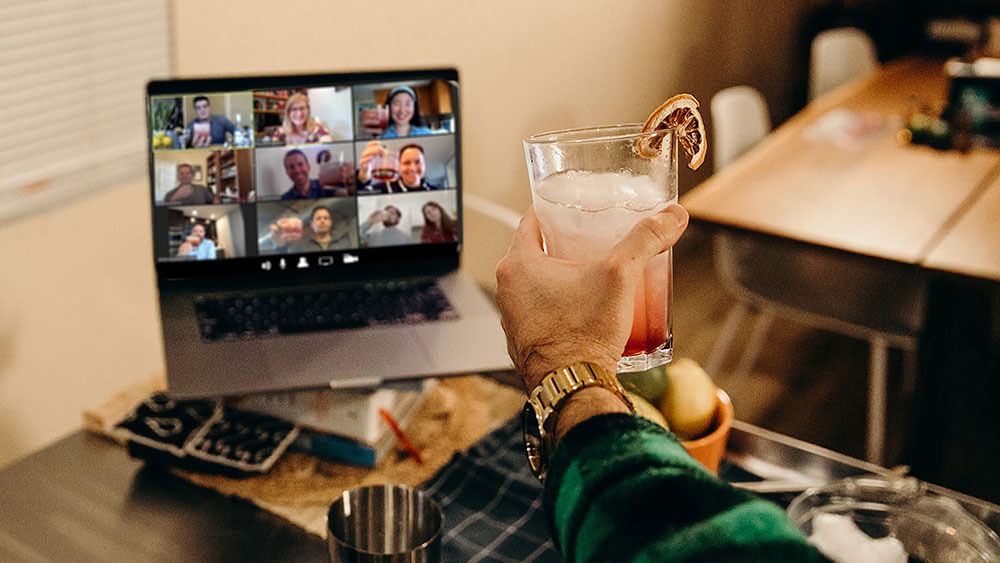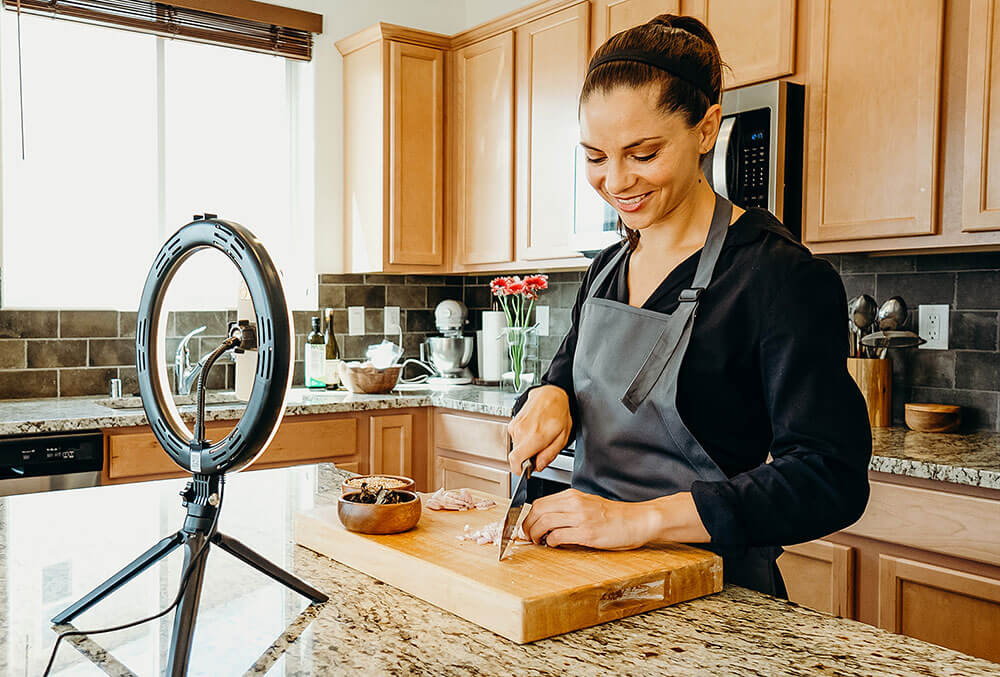
Employers are offering virtual activities to remote staff members to help create a stronger work culture. Avital Food Tours’ virtual mixology experiences can include ingredients kits shipped directly to participants and engraved cocktail shakers.
The pandemic made work from home (WFH) an instant and necessary experiment for many organizations. According to several studies, it’s a side effect of the COVID crisis that likely will stick around. Numerous studies indicate that the leaders of companies intend to enable their employees work from home, if not full-time permanently, then in some capacity. A 2020 Gartner Inc. study revealed that 82 percent of company leaders surveyed intend to allow remote work at least some of the time, and PwC’s US Remote Work Survey from January 2021 showed similar results — “less than one in five executives say they want to return to the office as it was pre-pandemic,” according to the report.
For some industries — tech, media, and finance, in particular — WFH is a good match. Companies like REI, Coinbase, and Zillow already have announced a permanent move to remote. And for many workers, it will be a welcome switch. But there is a downside: Studies show that the loss of in-person interaction has led to increased feelings of isolation and loneliness among employees, who are no longer able to strike up conversations with coworkers in the hallway or meet over coffee.
That means that companies need to be more intentional about creating those “watercooler chat” opportunities online. Zoom meetings can only go so far in creating meaningful interactions. Just as digital events provide online, interactive group experiences like cooking classes and mixology workshops, employers are recognizing how similar virtual activities for remote staff can contribute to a stronger work culture.

Named to Forbes’ 30 Under 30 list and Fortune’s “Most Powerful Women Entrepreneurs,” Ruzwana Bashir founded Peek — a marketplace for tours and travel experiences — after struggling to find options that appealed to her during her own vacation.
Peek — a booking platform for tours and activities — has pivoted during the pandemic to fully virtual teambuilding offerings for companies like Google, Spotify, and Amazon. Founded by Ruzwana Bashir 10 years ago, by January 2020, Peek had built up its in-person options to more than 20,000 experiences around the world — from a tour of San Francisco in a 1970s-era VW bus to a shark fishing excursion off Savannah. “It’s like Shopify,” Bashir said, referring to the ecommerce platform for retail stores, “for experiences.”
At the start of last year, the travel technology startup hit $1 billion in bookings — by March, Bashir said, “we’d gone from $1 billion to zero.”
In an effort to keep her own team — 150-plus remote employees across five offices — engaged and motivated during the COVID crisis, Bashir reached out to Peek’s tour operators and asked them to tinker with their in-person experiences and create online versions. The result is a growing collection of virtual teambuilding experiences that was available in beta mode until an official launch on Peek.com last month.
“Remote work is here to stay, but we have not, as companies, built the kind of DNA and insight to be able to allow us to be able to do that properly,” Bashir said. “One big piece of this is culture building, and social activities build culture; they build personal relationships.”
Bashir said that every time she spoke to a CEO, they would say “this is a huge problem. We’re just not getting enough connection and bonding.”
Her team cherrypicked activities designed to encourage interaction between teams — like TikTok and K-Pop dance classes, a drag queen–led trivia night, and a chess class inspired by Netflix’s hit miniseries, “The Queen’s Gambit.”

Brooke Siem — a chef, cookbook author, and winner of Food Network’s “Chopped” — leads a group during one of Avital’s virtual Chefinar cooking classes.
‘Chefinars’ and More
Food-centered experiences stand out as the most popular kind of option for clients, Bashir said. One of Peek’s operators is Avital Food Tours, which specializes in “story-driven” culinary experiences. Prior to the pandemic, founder Avital Ungar was operating in-person tours in three cities, and was projecting 14,000 guests for 2020. By early March 2020, Avital’s revenue had also dropped to zero.
Reinventing Avital’s model in a matter of weeks (read Ungar’s first-hand account of that challenge), Ungar and her team launched a new series of virtual experiences tailored to the high-touch needs of corporate groups. Chefs and mixologists, many with impressive resumes, lead the sessions, which vary from 15-minute cocktail kickoffs for conferences to cooking classes (called “Chefinars”) and progressive three-course dinners. Alcohol and ingredients can be shipped directly to attendees, and an emcee is on-hand during the experiences to ensure things run smoothly.
There is an emphasis on “the unique and novel,” Ungar says of their experiences — like “Virtual Flavor Tripping” and “Virtual Water Tasting.” The latter, hosted by a certified water sommelier (yes, that’s a thing), ships premium water from all over the world to participants’ doors to experience how different waters taste.
“I think that one of the most impactful aspects of these sorts of virtual team-building experiences is the intimacy that’s created when colleagues ‘invite’ each other into their homes,” said Brooke Siem, a chef and cookbook author who leads some of Avital’s culinary experiences. “It’s one thing to have your colleagues see you in an office or with a virtual background. It’s another thing entirely to bring them into the kitchen, where they may not be as confident or as polished as they are in the workplace. The kitchen becomes delightfully unpredictable. The boss relaxes with a cocktail, kids appear and interact with other employees on the call, fire alarms go off, long-time mushroom haters learn that in the right preparation, mushrooms can be delicious. All of it offers new ways for people to lower their guard and bring out the human behind the screen, which in a world that has felt so flat and isolating, is a welcome gift.”
Since March 2020, Ungar says demand for these experiences has increased significantly and continues to grow. “As more and more companies become remote-first workplaces, the need for increased connection between colleagues becomes important,” she said, adding that they plan to keep them on the menu for the long term.
“The virtual and in-person experiences will complement each other in our business. No longer will one colleague be excluded because they can’t be ‘in-person.’”
Jennifer N. Dienst at managing editor of Convene.
